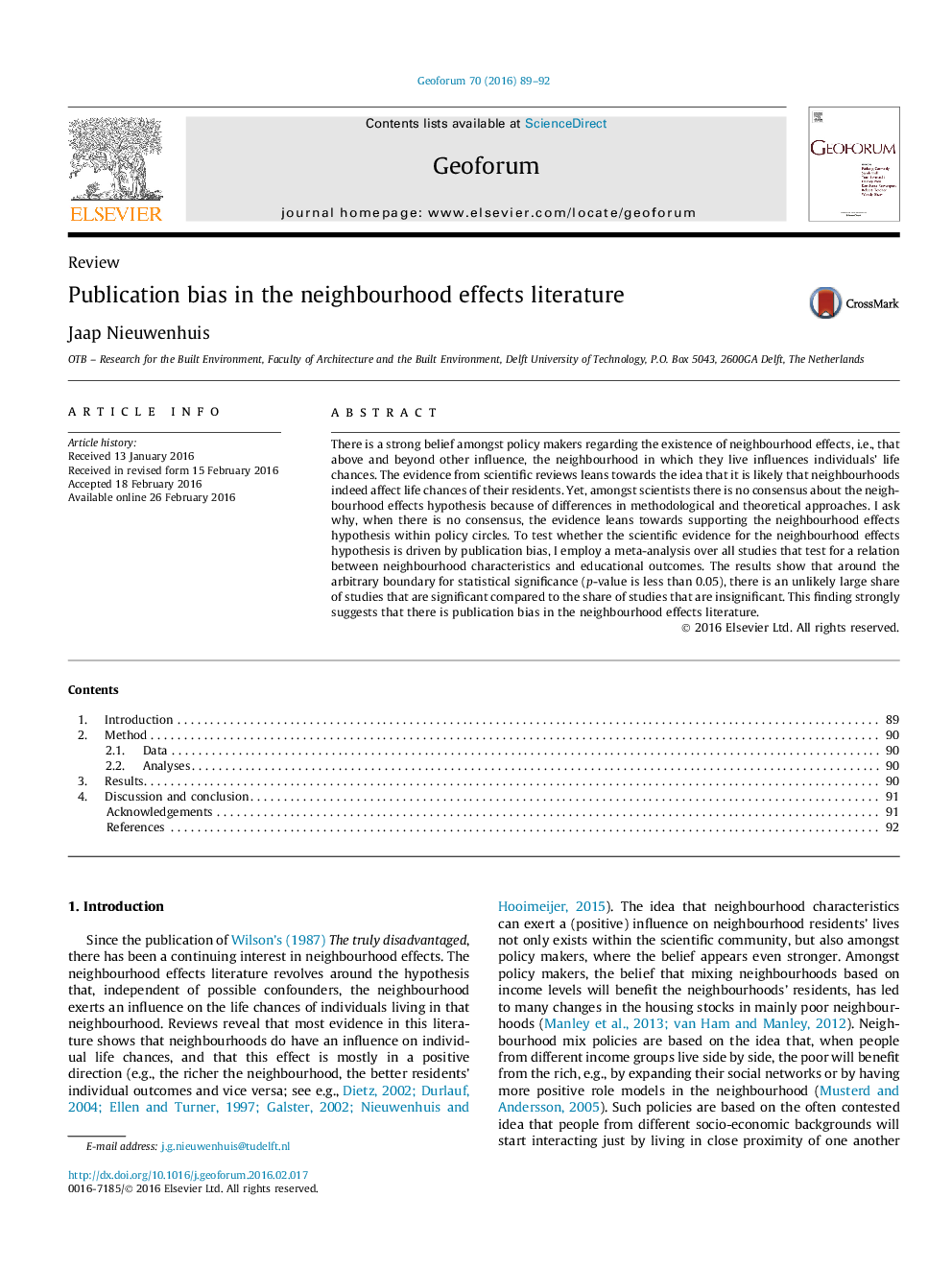| Article ID | Journal | Published Year | Pages | File Type |
|---|---|---|---|---|
| 5073397 | Geoforum | 2016 | 4 Pages |
Abstract
There is a strong belief amongst policy makers regarding the existence of neighbourhood effects, i.e., that above and beyond other influence, the neighbourhood in which they live influences individuals' life chances. The evidence from scientific reviews leans towards the idea that it is likely that neighbourhoods indeed affect life chances of their residents. Yet, amongst scientists there is no consensus about the neighbourhood effects hypothesis because of differences in methodological and theoretical approaches. I ask why, when there is no consensus, the evidence leans towards supporting the neighbourhood effects hypothesis within policy circles. To test whether the scientific evidence for the neighbourhood effects hypothesis is driven by publication bias, I employ a meta-analysis over all studies that test for a relation between neighbourhood characteristics and educational outcomes. The results show that around the arbitrary boundary for statistical significance (p-value is less than 0.05), there is an unlikely large share of studies that are significant compared to the share of studies that are insignificant. This finding strongly suggests that there is publication bias in the neighbourhood effects literature.
Related Topics
Social Sciences and Humanities
Economics, Econometrics and Finance
Economics and Econometrics
Authors
Jaap Nieuwenhuis,
